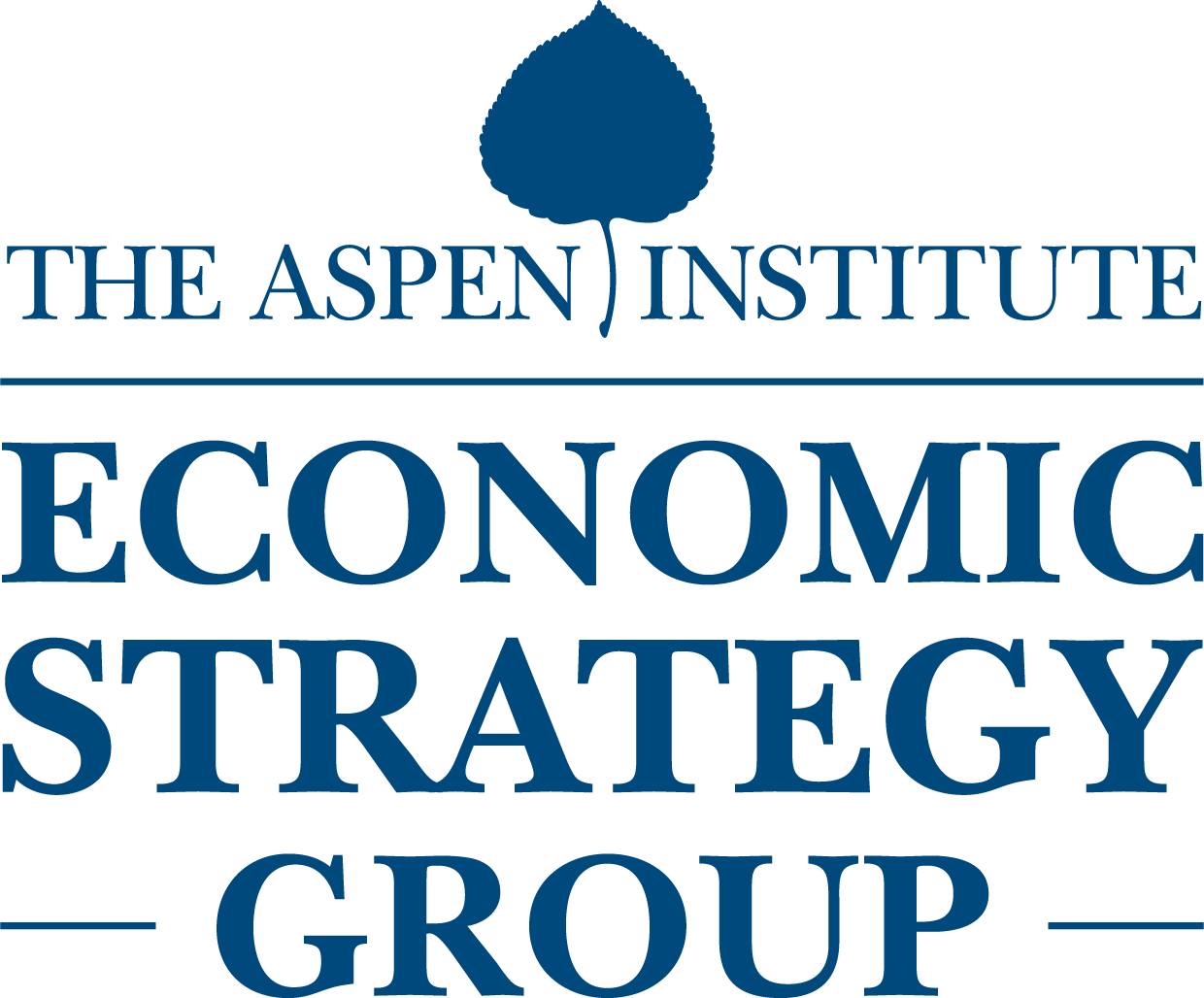
Aspen Economic Strategy Group Examines Challenges and Opportunities of the Post-Pandemic Economy in New Policy Volume

Former Treasury Secretary Timothy Geithner announced as group’s new Co-Chair and eight leading experts from academia and industry join as new members
WASHINGTON, DC | DECEMBER 1, 2021 — The Aspen Economic Strategy Group (AESG) today released its annual policy volume examining some of the most significant economic challenges facing the nation. The Covid-19 pandemic reinforced and exacerbated many structural economic challenges of our society and transformed the way millions of Americans live and work. This year’s volume, titled, Rebuilding the Post-Pandemic Economy, features eight chapters that focus on various elements of the US economic recovery following the pandemic and the US infrastructure agenda.
Currently co-chaired by Henry M. Paulson, Jr. and Erskine Bowles, the Aspen Economic Strategy Group brings together a diverse, bipartisan group of distinguished leaders and thinkers to foster the exchange of economic policy ideas. Today the AESG announces that founding Co-Chair Erskine Bowles will step down after five years of co-chairing the group and will remain a member. Former US Treasury Secretary Timothy Geithner will join Henry M. Paulson, Jr. as Co-Chair beginning in January 2022. Timothy Geithner is President of Warburg Pincus.
In addition, the AESG announces eight new members:
- Darius Adamczyk – Chairman and CEO, Honeywell
- Kerwin Charles – Indra K. Nooyi Dean and Frederic D. Wolfe Professor of Economics, Policy and Management at the Yale School of Management
- Tony Coles – Chairperson and CEO, Cerevel Therapeutics
- Karen Dynan – Professor of the Practice, Harvard Economics Department and Harvard Kennedy School
- Kaye Husbands Fealing – Dean of the Ivan Allen College of Liberal Arts at the Georgia Institute of Technology
- Craig Garthwaite – Herman Smith Research Professor in Hospital and Health Services Management; Director of the Program on Healthcare at the Northwestern Kellogg School of Management
- Edward Glaeser – Fred and Eleanor Glimp Professor and the Chair of the Department of Economics at Harvard University
- Paul Ryan – former US Speaker of the House and Founder of the American Idea Foundation
“This is a great group of people, committed to advancing evidence-based solutions to some of the nation’s most pressing economic issues,” said Timothy Geithner. “I’m proud to join Hank in this effort and look forward to building on Erskine’s leadership.”
The 2021 policy volume is a culmination of the past year’s AESG research and series of meetings among its membership. Its eight chapters, edited by AESG Director Melissa S. Kearney and Deputy Director Amy Ganz, examine important questions about how the post-pandemic economy will take shape. What are some initial lessons we can take away from the novel government programs that were deployed to provide economic relief and stimulus? What kinds of investments do we need to make to our infrastructure to promote productivity and growth in an equitable way? After a year of widespread school closures, what have we learned about the role of K-12 education in perpetuating or reducing social and economic inequities? And how should American trade policies evolve to promote economic recovery and strengthen America’s role in the global economy?
The release of the policy volume coincides with a livestream (December 1 from 1:30-2:45pm ET) hosted by Aspen Economic Strategy Group featuring several authors. The livestream link can be found here and and more information about the webinar is available on the AESG event webpage.
The two-part volume underscores the challenge for economic policymakers is not simply to return to the status quo but rather to rebuild an economy that is more prosperous, dynamic, fair, and resilient to future shocks. https://www.economicstrategygroup.org/publication/rebuilding/
PART I: THE POST PANDEMIC ECONOMIC RECOVERY
Internet Access and its Implications for Productivity, Inequality, and Resilience
By Jose Maria Barrero, Nicholas Bloom, Steven J. Davis
Business Continuity Insurance in the Next Disaster
By Samuel Hanson, Adi Sunderam, Eric Zwick
Data-Driven Opportunities to Scale Reemployment Opportunities and Social Insurance for Unemployed Workers During the Recovery
By Till von Wachter
Addressing Inequities in the US K-12 Education System
By Nora Gordon and Sarah Reber
America and International Trade Cooperation
By Chad P. Bown
PART II: THE US INFRASTRUCTURE AGENDA
Economic Perspectives on Infrastructure Investment
By Edward Glaeser and James Poterba
Challenges of a Clean Energy Transition and Implications for Energy Infrastructure Policy
By Severin Borenstein and Ryan Kellogg
Science and Innovation: The Under-Fueled Engine of Prosperity
By Benjamin F. Jones
“The pandemic ushered in major changes to the US economy and an unprecedented US policy response,” said AESG director Melissa S. Kearney, the Neil Moskowitz Professor of Economics at the University of Maryland. “This book contains many timely policy recommendations that can help our country rebuild a more prosperous and equitable economy. The book also contains valuable insights and lessons for how our country can be better prepared for future recessions. Our group’s focus on building a stronger, more competitive, more equitable economy will continue throughout the year, and we are honored to welcome Secretary Geithner and eight new members to lend their expertise and experience to this important work.”
#####
The Aspen Economic Strategy Group (AESG), a program of the Aspen Institute, is composed of a diverse, bipartisan group of distinguished leaders and thinkers with the goal of promoting evidence-based solutions to significant U.S. economic challenges. Co-chaired by Henry M. Paulson, Jr. and Erskine Bowles, the AESG fosters the exchange of economic policy ideas and seeks to clarify the lines of debate on emerging economic issues while promoting bipartisan relationship-building among current and future generations of policy leaders in Washington. More information can be found at https://economicstrategygroup.org/.
The Aspen Institute is a global nonprofit organization committed to realizing a free, just, and equitable society. Founded in 1949, the Institute drives change through dialogue, leadership, and action to help solve the most important challenges facing the United States and the world. Headquartered in Washington, DC, the Institute has a campus in Aspen, Colorado, and an international network of partners. For more information, visit www.aspeninstitute.org.
CONTACT: Suzanne.pinto@argos-communications.com